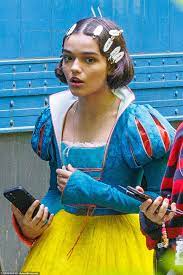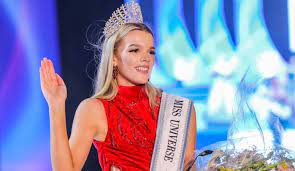By Harry Storm

One-way streets were created by urban planners decades ago to improve the flow of traffic. The metaphorical one-way street has a more recent pedigree, yet the phenomenon has already managed to cast its net over civic institutions and much of the media.
The metaphorical one-way street is defined as “a situation, agreement, or relationship in which only one side or party is benefitting or has any power, influence, or control.” According to HP’s long-gone and lamented contributor Fasdunkle, who coined the term here, that definition has long and convincingly applied to Islamic activists, who continually demand respect from government and civil society for their customs and institutions, but show little or none for those of the countries they live in. As Douglas Murray so aptly put it when Kate Middleton wore a veil to a meeting with a Muslim leader in London who nonetheless still refused to shake her hand, “diversity in countries like Britain is expected in recent years to be a one-way street. Society has to adapt to the migrant, not the migrant to society.”
But whereas the one-way street behaviour of Islamic extremists is reasonably well established, little has been written about how the one-way street has also infected the entertainment world. In entertainment’s one-way street, blacks and hispanics can play white characters in movies and plays, but a white person cannot under any circumstances play the role of a person of colour. And the short career of young actress Rachel Zegler is a case in point.

You may have heard of Zegler, who plays the role of Snow White in a live-action remake of the 1937 Disney classic that has yet to be released (and, if the rumours are true, may never be), because negative comments by her about the original movie have unleashed a firestorm of criticism and mockery. “The movie was made in 1937, and evidently so,” Zegler says, implying that movies made decades ago need to be updated to reflect current progressive sensibilities. Therefore, in the remake, “[Snow White] isn’t dreaming about true love, she’s dreaming about becoming the leader she knows she can be.” For good measure, she infamously referred to the Prince in the original movie as a “guy who literally stalks” Snow White. Needless to say, such comments haven’t endeared Zegler to the legions of fans of the original film.
But the outrage over Zegler’s put-downs of the Disney classic has obscured just how perfectly her short career illustrates Hollywood’s embrace of the one-way street. Zegler, who is half hispanic, was plucked from obscurity when she landed the role of Maria in a recent remake of West Side Story. Regardless of how well Natalie Wood performed as Maria in the original version, no white woman was considered for the role, because Maria is Puerto Rican. But when casting for Snow WHITE – the FAIREST of them all – Disney chose Zegler for the role (to their regret now, no doubt). I have yet to find a better example of the entertainment industry’s one-way street.
But it’s hardly the only example. The mostly black cast of the play “Hamilton” – about the life and times of the very white Alexander Hamilton — received enthusiastic kudos, and the play was lauded for its diversity. To take just one example, in October 2020, reviewer Zack Krajnyak called the choice to enlist a mostly non-white cast “satisfyingly provocative, as it paints a picture of a more diverse nation whose history truly belongs to every one of her inhabitants.”
Similarly, when a British 3-part series about Ann Boleyn that featured a black actress in the title role was produced in 2021, reviewers in the legacy media ooh’d and ahh’d about the choice – (though not necessarily about the production), and, for good measure, labelled critics who complained that a black Anne Boleyn was historically inaccurate as racist.
But, as Quebec theatrical director Robert LePage discovered, there was nothing “satisfyingly provocative” about his use of a mostly white cast for his production “SLAV,” a theatrical production that featured a collection of slave songs. LePage, who initially tried to defend the production, was pilloried by much of both the white and black artistic community. Ultimately, the uproar forced the cancellation of the show, and although some Quebecois commentators criticized the cancellation, in the end, the only performance was by LePage himself, who had to issue the ritual apology, including the promise to “do better.”
Similarly, when the Hungarian State Opera staged Porgy and Bess with mostly white Hungarian actors – and changed its setting in the American South into a refugee camp in an airplane hangar – critical articles appeared in the New York Times and the Guardian, among others. (The Gershwins had stipulated that any production of P&B had to have an all-black cast. To get around this – and, I suspect, to stick it to the woke Western embrace of transgender and anti-“racist” ideology — cast members were asked to sign documents stating they “self-identified” as blacks.)
Not to be outdone, progressive Jews also have hitched a ride down the one-way street, criticizing the selection of non-Jewish actors to play Jewish roles, including Bradley Cooper (who played Leonard Bernstein in Maestro), Rachel Brosnahan (The Marvelous Mrs. Maisel), Felicity Jones (Ruth Bader Ginsburg in On the Basis of Sex) and even Helen Mirren (Golda), regardless of their experience as actors or how well they performed their roles. “Only Jews should play Jews,” squawked the increasingly woke comedienne Sarah Silverman, who popularized the term “Jewface” to describe non-Jews playing Jewish characters (though it didn’t stop her from appearing alongside Cooper as Bernstein’s sister Shirley). But Silverman and the other Jewish one-way street residents show no concern about the vast number of Jews over the years who have played non-Jewish characters in film and TV. (To be fair to Silverman, whose comedy I admire, she has played mostly, but not exclusively, Jewish characters.)

The one-way street isn’t limited to performers. Recently, after Brooke Bruk-Jackson, a white woman was chosen – by a black panel – to be Miss Zimbabwe Universe (i.e. the representative from Zimbabwe to the Miss Universe pageant), the shock was palpable, with many Zimbabwean blacks – and woke Western whites and blacks — angry that a “foreigner” would represent Zimbabwe (Bruk-Jackson was born in Zimbabwe, where whites currently make up about 1-2% of the population). As is always the case on the one-way street, no such anger has greeted the many black beauty pageant winners from and in mostly white countries.
The hypocrisy and double standards of the metaphorical one way street are outrageous and deserve the strongest possible condemnation as blatant, in-your-face reverse racism. But given the sway of “progressive” identity politics – and unfortunately there are few signs of that ending any time soon in the cultural and entertainment sectors – the one-way street likely will be with us for the foreseeable future.
